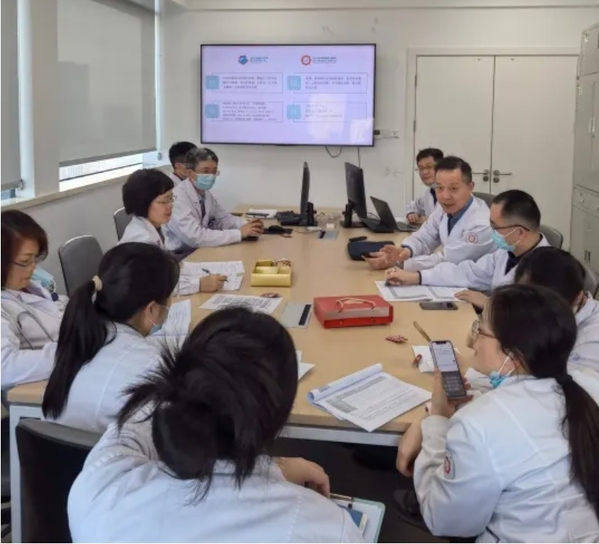Zhejiang University Achieves Milestone: First Application of CAR-T Therapy for Childhood-Onset SLE
Chimeric Antigen Receptor T-cell (CAR-T) therapy, a pioneering treatment for B-cell malignancies, has garnered significant attention lately due to its promising potential in tackling severe autoimmune disorders, especially systemic lupus erythematosus (SLE). Nonetheless, there is a notable absence of reported applications of CAR-T therapy in pediatric SLE patients.
In March 2024, the Children’s Hospital of Zhejiang University School of Medicine initiated the groundbreaking use of CAR-T therapy in the treatment of refractory childhood-onset SLE, marking a significant milestone as the world’s first application of this innovative therapy in a pediatric patient.
Cancan (not in her real name), a 12-year-old girl from Taizhou city, Zhejiang Province, has been battling with SLE for over three years. Her condition is characterized by a range of symptoms, including a decrease in blood white cell count, recurrent skin rashes, oral ulcerations, and multiple arthralgia accompanied by synovial effusion. Despite receiving sequential treatments, including high-dose glucocorticoids, hydroxychloroquine, cyclosporine, cyclophosphamide, and a year-long B-cell-targeting therapy with belimumab, her health has continued to deteriorate on numerous occasions. Moreover, in February 2024, she developed significant proteinuria, further compounding her already challenging health situation.

Prof. MAO Jianhua and colleagues conducting a multidisciplinary discussion
After thorough deliberations by both the Prof.MAO Jianhua and his nephrology team and Cancan’s parents, it was decided to proceed with CD19-targeted CAR T therapy for her. Leukapheresis was successfully conducted and CAR-T cells were produced by the technical partner-Chongqing Precision Biotechnology Co., Ltd.
Before the scheduled infusion of CAR-T cells, all treatments, including glucocorticoids and several immunosuppressants, were discontinued. Prior to the infusion (day 0), Cancan underwent preparatory lymphodepletion by receiving cyclophosphamide (300mg/m2/day) and fludarabine (30mg/m2/day) from -5 to -3 days. Additionally, oral sulfamethoxazole-trimethoprim (SMZ) was prescribed to prevent pneumocystis carinii infection. Subsequently, on March 12th, an infusion of 0.94×105 CD19/kg CAR-T cells was administered.
The cell infusion, which lasted only about 10 minutes, was similar to a regular intravenous infusion treatment, and Cancan did not experience any discomfort during the procedure.
As the CAR T-cells proliferated in vivo, Cancan exhibited stable vital signs, absent of any cytokine release syndrome reactions such as high fever, hypotension, or hypoxemia. Furthermore, there were no notable elevations in cytokine levels observed. However, on the eighth day following infusion, she presented with symptoms of fatigue, limb tremors, and mild expressive and receptive language dysfunction. Promptly after administering glucocorticoid treatment, these symptoms rapidly subsided. Encouragingly, on the 14th day, her proteinuria level had decreased by half compared to its pretreatment baseline.
On March 27th, Cancan was discharged from the hospital after successfully completing her treatment and is expected to achieve a complete recovery. This breakthrough is clinically significant, indicating that more children with refractory SLE will benefit from advancements in medical technology and have the potential to fully recover, Prof. MAO Jianhua says.

Prof. MAO Jianhua taking a photo with the patient.
When compared to adults, children with SLE often experience a higher frequency of the disease, a heightened risk of organ damage (especially kidney damage), a prolonged illness duration, and an overall poorer prognosis. Currently, the available treatment options are limited, and patients often require long-term medication that can come with significant side effects. The successful application of this CAR-T therapy to Cancan underscores its feasibility, safety, and efficacy in treating pediatric patients with SLE. In the upcoming period, we will maintain a diligent follow-up on Cancan and enroll more pediatric patients with refractory SLE to participate in this clinical study.

